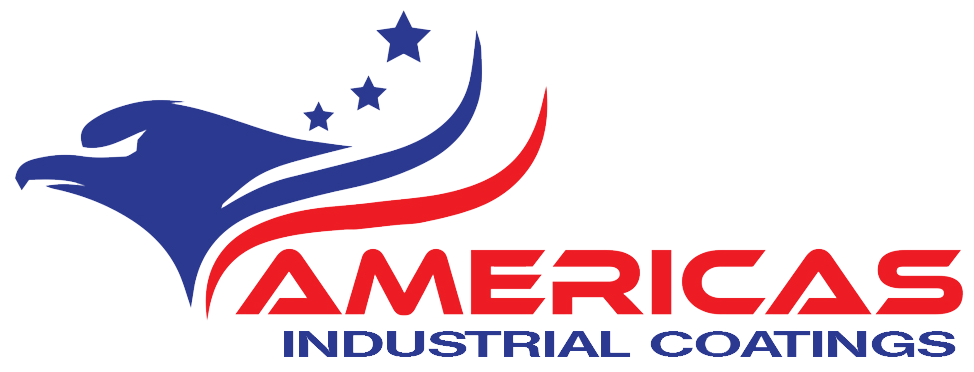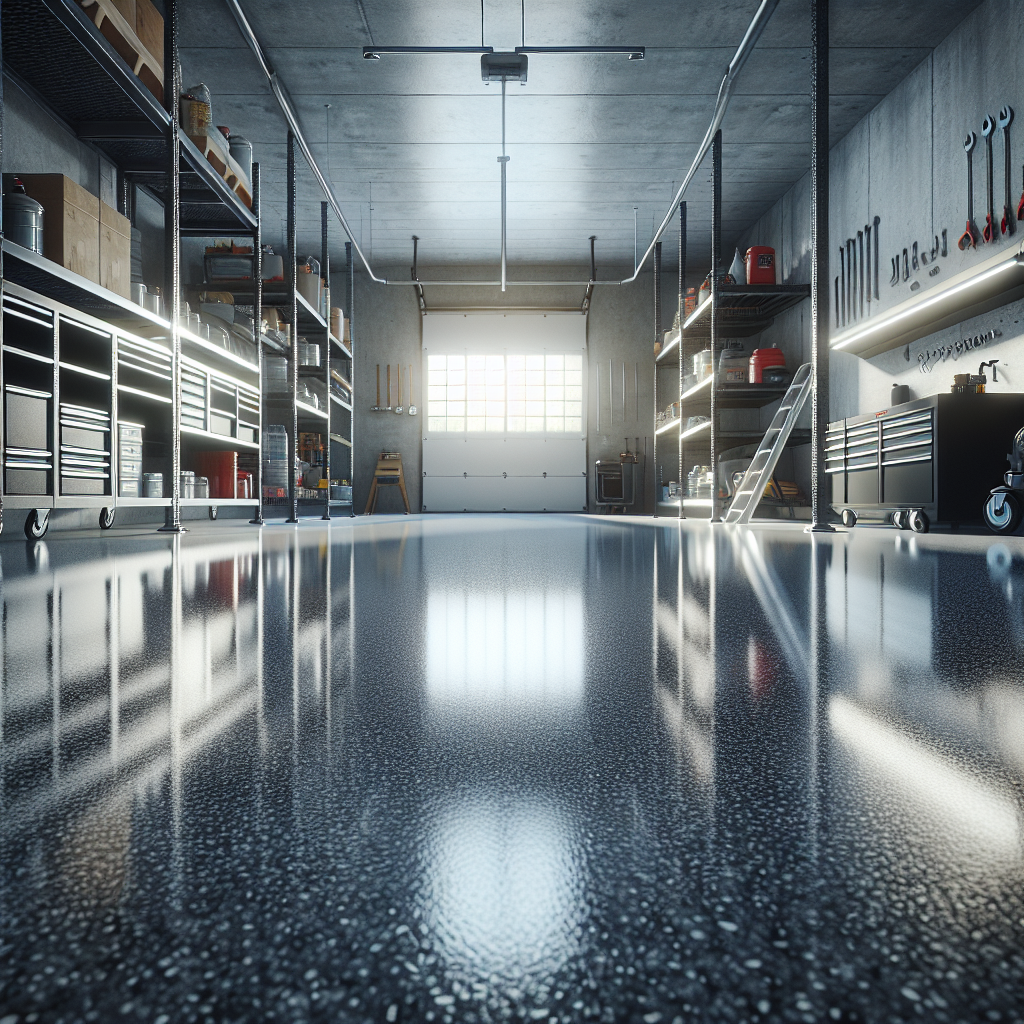When it comes to enhancing and protecting your garage floor, **epoxy coatings** stand out as a prime solution. Not only do they provide a polished, professional look, but they also offer incredible durability, making them ideal for an environment that often endures heavy use. With the potential to transform any ordinary garage into a stunning, functional space, epoxy flooring has become a popular choice for homeowners across the nation.
Understanding what epoxy is and how it works is crucial in making an informed decision for your garage flooring needs. Epoxy is a thermosetting resin that, when applied to concrete floors, forms a hardened, protective surface that can withstand the wear and tear of daily activities. This includes resistance to stains, chemicals, and abrasions, making it perfect for garages where spills and dropped tools are common occurrences.
The process of installing an epoxy floor involves cleaning and preparing the concrete surface, applying the epoxy resin, and allowing it to cure. The result is a seamless, glossy finish that not only enhances the aesthetic appeal of your garage but also adds significant value to your property.
For those contemplating whether an epoxy garage floor is the right choice, consider the myriad benefits it offers. From its **highly durable** nature to its low-maintenance needs, epoxy flooring can meet and exceed your expectations. Ready to transform your garage into a showroom-quality space? Call Us Today for a Free Quote and explore the possibilities with America’s Industrial Coatings in Fort Lauderdale.
Key Features of Quality Epoxy
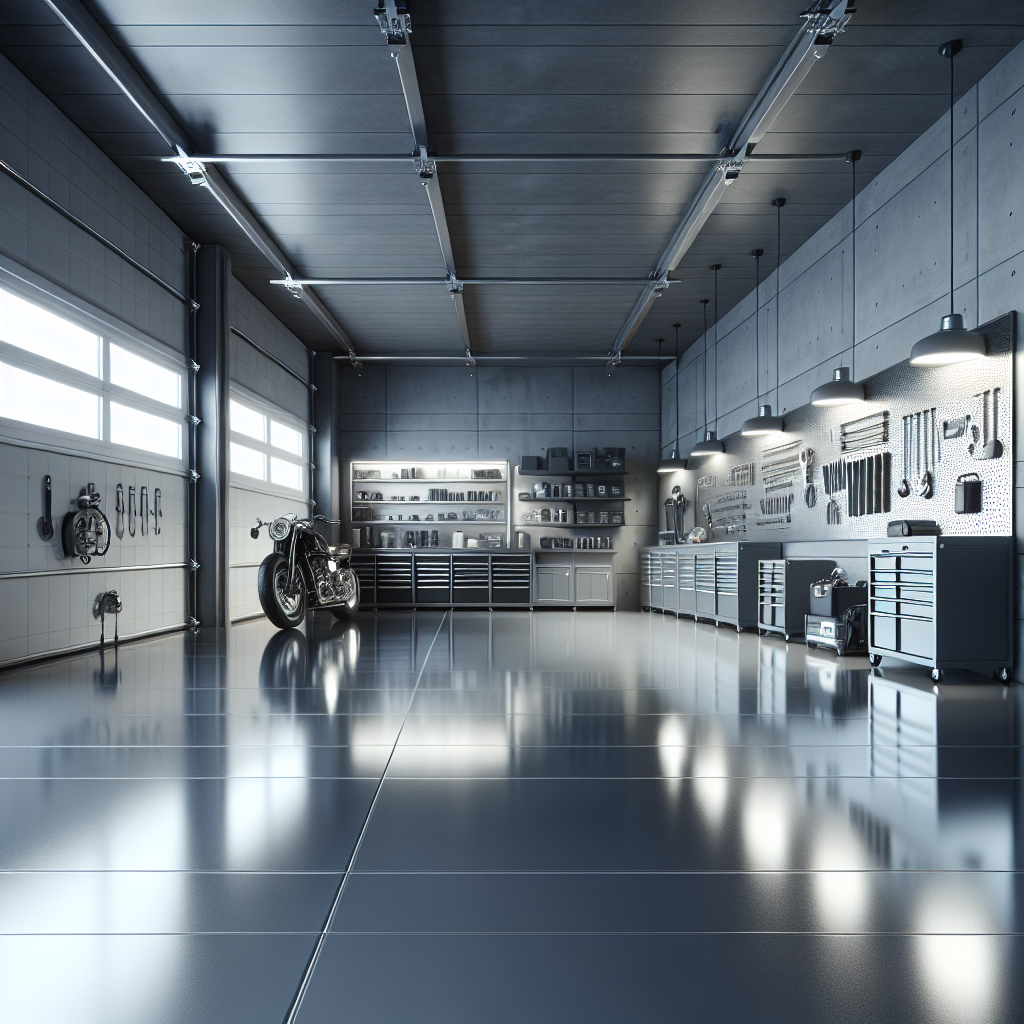
Choosing the right epoxy for your garage floor involves understanding the key features that define a **quality epoxy product**. Not all epoxy coatings are created equal, and recognizing these features can help you select an option that offers both aesthetic appeal and long-lasting durability.
First and foremost, a high-quality epoxy should have excellent **adhesion properties**, ensuring it bonds well to the concrete surface. This adhesion is crucial for the longevity of the coating, preventing issues like peeling or delamination over time. Additionally, a good epoxy floor coating should be **UV resistant**, preventing discoloration and degradation caused by sunlight exposure.
Another important feature is **chemical resistance**. A quality epoxy will withstand exposure to various chemicals typically found in garages, such as oil, gasoline, and cleaning agents. This resistance ensures that spills and drips do not damage the coating or the underlying concrete.
Durability is also a key consideration. **High-quality epoxies** are known for their ability to endure heavy foot and vehicle traffic without losing their luster or structural integrity. They should also be resistant to scratches and abrasions, maintaining a pristine look even under challenging conditions.
Lastly, consider the **ease of maintenance**. A top-tier epoxy should require minimal effort to keep clean, with properties that repel dirt and grime, making it easy to maintain with regular sweeping and occasional mopping.
By focusing on these essential features, you can ensure that your epoxy garage floor not only looks great but also stands the test of time, providing a functional and attractive surface for years to come.
Types of Epoxy for Garage Floors
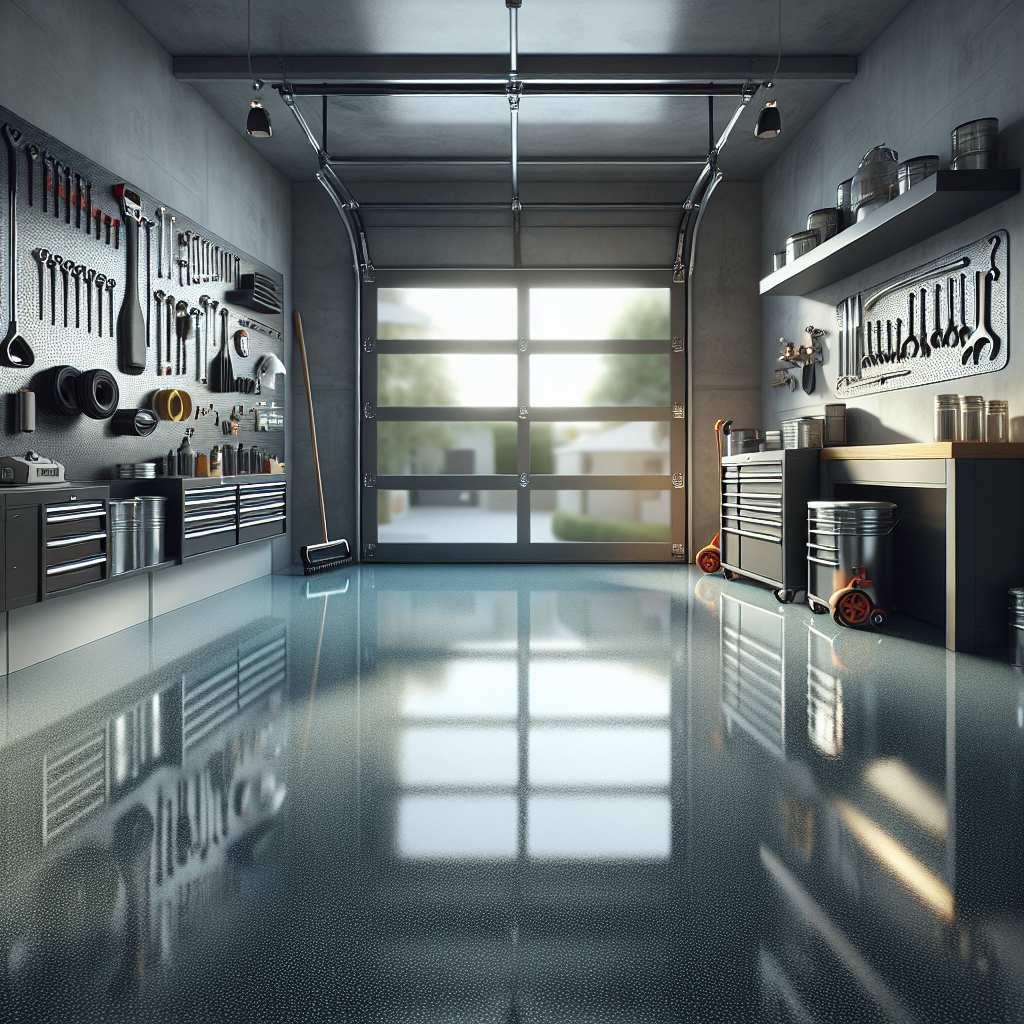
Understanding the different **types of epoxy available for garage floors** can help you make an informed decision tailored to your specific needs and preferences. Each type offers unique benefits and serves different purposes, making it essential to choose the one that best suits your garage environment.
**Solid epoxy** is one of the most durable options available. It offers a thick, high-gloss finish that is resistant to heavy traffic and chemicals. This type of epoxy is ideal for garages that experience frequent and intense use, as it provides a robust surface that can withstand significant wear and tear.
Another popular option is **water-based epoxy**. This type is more user-friendly, often preferred by DIY enthusiasts due to its ease of application and clean-up. While it may not be as durable as solid epoxy, it still offers a reliable surface for standard garage use, providing a glossy finish with decent protection against spills and stains.
**Solvent-based epoxy** is known for its strong adhesive properties and resistance to moisture. It penetrates the concrete surface effectively, making it a good choice for garages that experience high humidity or are located in areas with frequent rainfall. However, it requires careful handling due to its strong fumes during application.
Lastly, **epoxy flake coatings** add a unique aesthetic appeal to garage floors. These coatings incorporate colored flakes or chips, creating a textured, visually striking surface. Besides enhancing appearance, they also provide additional slip resistance, making them a practical choice for those who prioritize both form and function.
By selecting the appropriate type of epoxy for your garage, you can ensure that your floor is not only beautiful but also functional, meeting the demands of your lifestyle effectively.
Benefits of Using Epoxy in Garages
Choosing epoxy for your garage floor comes with a multitude of **benefits that enhance both the functionality and aesthetics** of the space. One of the most significant advantages is its exceptional durability. Epoxy coatings create a hard, resilient surface capable of withstanding heavy loads, making it ideal for areas with vehicles, machinery, or frequent foot traffic.
In addition to durability, epoxy is highly **resistant to chemicals and stains**. This makes it a perfect choice for garage environments prone to oil spills, chemical leaks, or other substances that can potentially damage other types of flooring. With epoxy, you can easily clean spills without worrying about long-term damage to the floor.
The **aesthetic appeal** of epoxy is another compelling reason for its use in garages. It offers a sleek, polished finish that can significantly enhance the look of your garage. With various colors and decorative options available, epoxy coatings can transform a dull, mundane floor into a vibrant and inviting space.
Moreover, epoxy floors are **low-maintenance**, requiring minimal effort to keep them looking pristine. Their seamless, non-porous surface prevents dirt and grime from accumulating, making regular sweeping and occasional mopping sufficient to maintain cleanliness.
Finally, epoxy offers **enhanced safety features**. Many epoxy coatings include slip-resistant additives, reducing the risk of accidents in areas prone to moisture or spills. This feature is particularly beneficial in garages, where safety is a top priority.
By opting for epoxy flooring in your garage, you are investing in a solution that combines practicality, beauty, and safety, ensuring long-lasting satisfaction and performance.
How to Choose the Right Epoxy
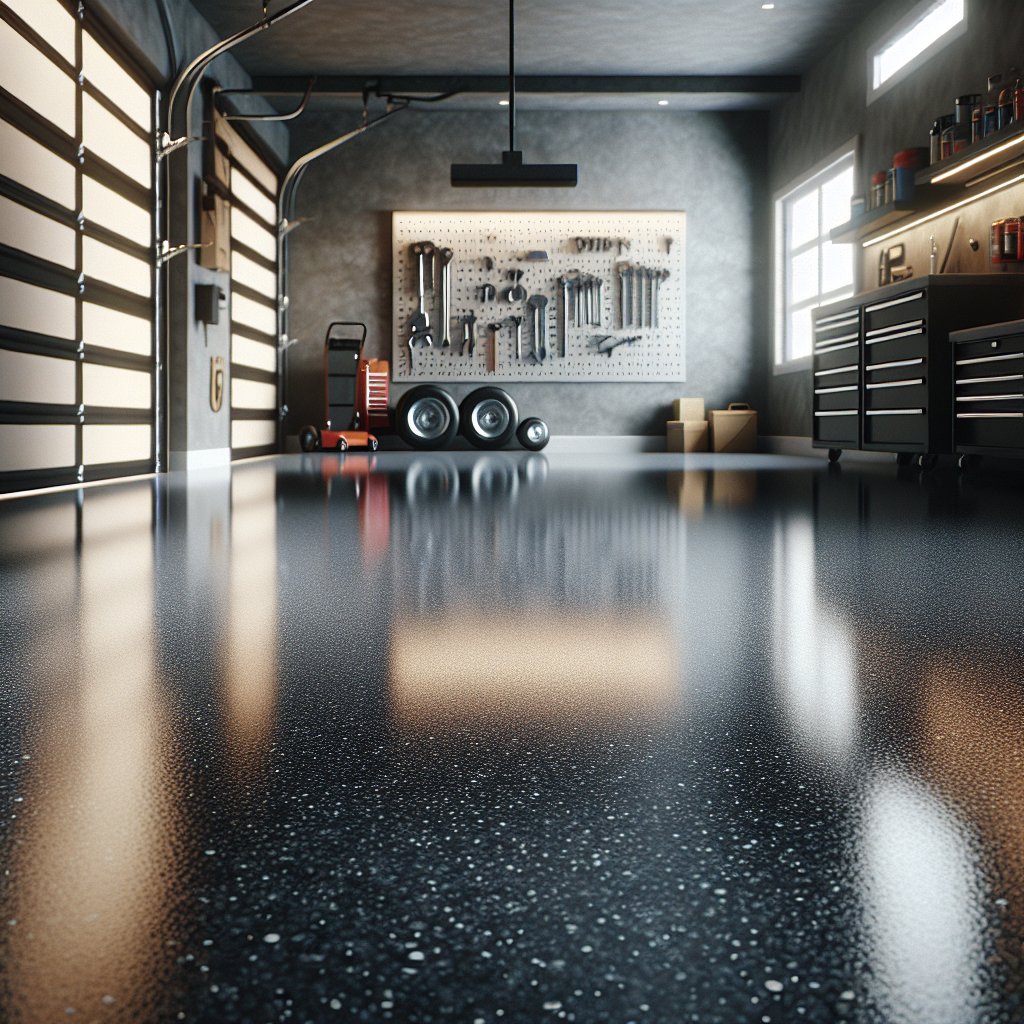
Selecting the right epoxy for your garage floor is crucial to achieving the desired results and ensuring long-term satisfaction. **Understanding your specific needs and the characteristics of different epoxy types** will guide you in making an informed choice.
Start by evaluating the **intended use of your garage**. If your garage is primarily used for heavy-duty storage or as a workshop, opt for a high-performance epoxy that offers enhanced durability and resistance. In contrast, if aesthetics are your priority, you might choose an epoxy that provides a glossy finish with decorative flakes or metallic pigments.
Another critical factor is the **environmental conditions** of your garage. Consider the temperature and humidity levels, as some epoxy formulations are better suited for fluctuating temperatures or damp conditions. For garages in areas with extreme weather, look for epoxy products specifically designed to withstand those challenges.
Additionally, think about the **installation process and timeline**. Some epoxy coatings require professional installation, while others are DIY-friendly. If you’re short on time, quick-drying epoxies might be more appealing. However, these often require precise application to ensure a smooth finish.
Also, consider the **maintenance requirements** of the epoxy. Some types may require more frequent resealing or touch-ups than others. Choosing a low-maintenance option can save you time and effort in the long run.
Finally, don’t overlook the importance of **budget considerations**. While it can be tempting to opt for a less expensive product, investing in a high-quality epoxy can prevent costly repairs or replacements in the future. Remember to compare warranties and customer reviews to ensure you are choosing a reliable product.
By thoroughly assessing these factors, you can confidently select an epoxy solution that perfectly aligns with your garage flooring needs.
Expert Tips for Epoxy Installation
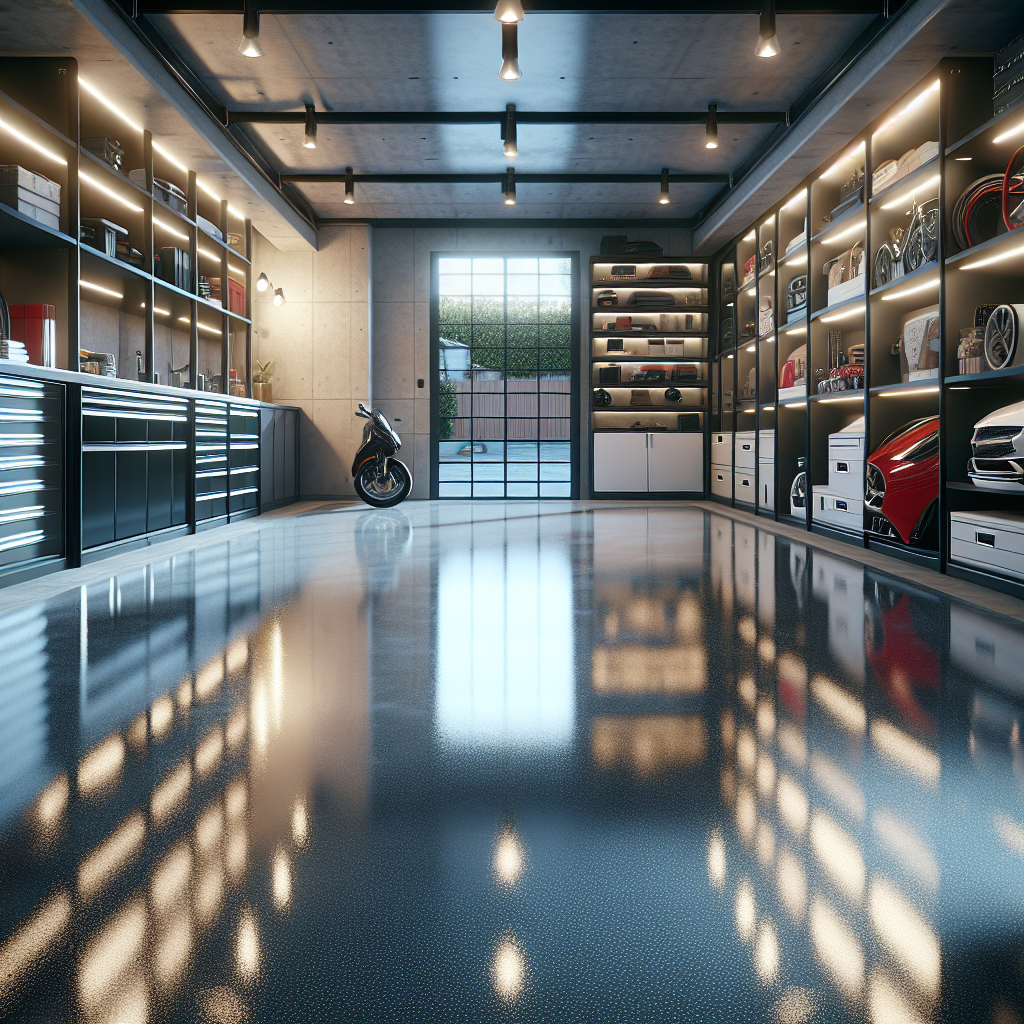
Successfully installing epoxy on your garage floor requires careful attention to detail and adherence to best practices. Here are some **expert tips** to ensure a seamless and professional application.
**Preparation is Key:** Start by meticulously cleaning the garage floor. Remove any dust, grease, or existing coatings as they can prevent the epoxy from adhering properly. Use a degreaser and a concrete grinder for tough spots. **Repair cracks and imperfections** in the concrete to create a smooth surface for the epoxy.
**Choose the Right Day:** The weather can significantly impact the curing process. Aim to apply the epoxy when temperatures are between 60°F and 85°F, and humidity is low. This helps prevent issues like bubbling or improper curing.
**Mixing the Epoxy:** Follow the manufacturer’s instructions precisely when mixing the epoxy components. **Accurate mixing** ensures the epoxy hardens correctly and achieves optimal durability. Use a power drill with a mixing paddle for a consistent blend.
**Application Technique:** Begin by cutting in edges with a brush before using a roller for larger areas. Apply the epoxy in thin, even coats, allowing each layer to dry completely before adding the next. This approach minimizes the risk of bubbles and ensures a smooth finish.
**Safety Precautions:** Wear protective gear such as gloves, goggles, and a mask to avoid skin contact and inhalation of fumes. Ensure the garage is well-ventilated during the application process.
**Finishing Touches:** Consider adding non-slip additives to the final coat for enhanced safety. This is especially important in garages where oil or water spills are common.
By following these expert tips, you can achieve a professional-looking epoxy finish that stands the test of time. If you prefer professional installation, Call Us Today for a Free Quote and let our experts at Americas Industrial Coatings handle it for you.
